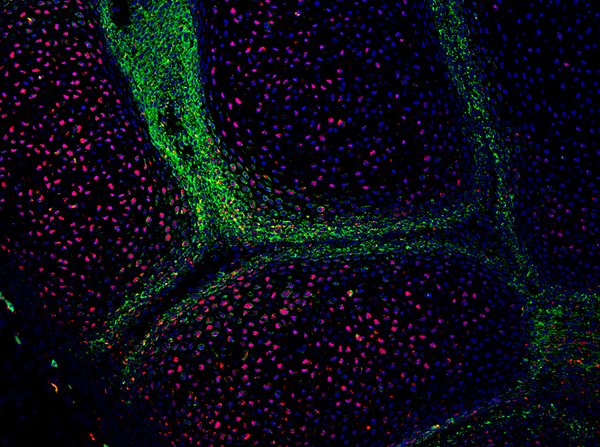
Denis Evseenko, a stem cell researcher at the Keck School of Medicine of USC, has been awarded two grants totaling more than $4 million to support osteoarthritis research. A $3.4 million R01 grant from the National Institutes of Health will fund research on the mechanisms behind the development, progression and prevention of osteoarthritis. A $750,000 grant from the U.S. Department of Defense will fund pre-clinical research on novel drug candidates that may have the potential to regenerate cartilage and slow the progression of osteoarthritis.
“Osteoarthritis is a looming public health problem with few solutions on the horizon,” said Evseenko, associate professor of orthopedic surgery, and stem cell biology and regenerative medicine at the Keck School. “With these concurrent research efforts, we hope to translate our foundational knowledge about joint cartilage development into clinical therapies that would improve millions of lives.”
Osteoarthritis, caused by injuries and everyday wear and tear, is the most common joint disorder in the United States. Its prevalence is steadily growing due to longer life spans and increased obesity rates. It is estimated that by 2032, nearly 30 percent of people age 45 and older will be diagnosed with the disease. There is no cure for osteoarthritis, though pain medication can help improve quality of life. Those severely affected by the disease may opt for joint replacement surgery, but the procedure can be cost-prohibitive and may require revision surgery after a number of years.
Arthritis research at USC delves into degrading cartilage
Evseenko hypothesizes that genetic and pharmacologic manipulation of the body’s glycoprotein 130 (gp130) receptor molecule could decrease the effects of arthritis by slowing cartilage degradation, or perhaps even building new cartilage.
Gp130 is a complex receptor responsible for processing the body’s signals to grow cartilage in the embryo and cause chronic inflammation in adults. One method for targeting gp130 is using drug candidates similar in structure to the small molecule, “Regulator of Cartilage Growth and Differentiation 423” (RCGD 423).
RCGD 423 was discovered in Evseenko’s laboratory, and his recent research suggests targeting gp130 with RCGD 423 spurs cartilage growth while lowering inflammation associated with osteoarthritis. If the pre-clinical research data holds true, he hopes to launch clinical trials for an injectable therapy to delay the progression of arthritis among those in early stages of the disease.
